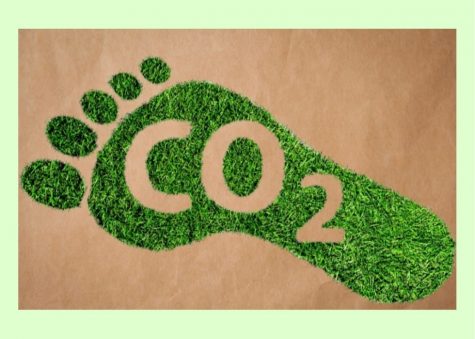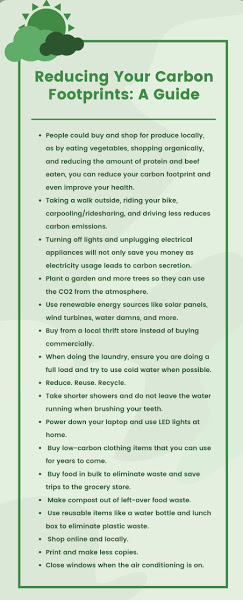What is a carbon footprint?
April 22, 2021

With the transportation industry booming, overpopulation struggles, and fossil fuels coming from all directions for all different activities, carbon admissions are at an all-time high and the environment – as well as the health of our atmosphere – is suffering first hand. On average, around 100 million metric tons of Carbon Dioxide are released into our atmosphere daily, causing global warming like never before and a heavy list of other doom-ridden complications.

To help the planet – to reverse action and push cleaner conditions – all Earthly citizens must act and contribute to the change. And although Carbon dioxide is an important greenhouse gas that helps to trap heat in our atmosphere and without it, our planet would be inhospitably cold, too much CO2 can lead to warmth and break down at confounding rates. Now, with ice caps melting and an increased number of forest fires, the planet suffers from the latter – warmer temperatures, destruction, floods, droughts, and so many more natural disasters.
The push for climate change does not have to start and end with the policymakers in Congress or the health officials at the United Nations, we can take action – and ultimately, help save the environment. How can you reduce your carbon footprint? Many may know the basic and most advertised ways to reduce carbon emissions like carpooling, taking public transportation, turning off the lights, taking the stairs, recycling, and saving water, however, there are so many more ways to reduce carbon emissions on a personal level.
The dramatic increase of carbon in our atmosphere will soon cause even more premature deaths and diseases to humans around the globe. By taking such simple steps as turning off the water and opening windows, we can diminish the number of Greenhouse gases in the airspace to create and push healthier living conditions.
A person’s personal carbon footprint measures their behavior’s impact on global warming. Someone who effectively wants to contribute to stopping the global climate crisis, on an individual scale, needs to be able to measure and keep track of their personal carbon footprint. By setting goals, living life safely, and reducing waste, the environment can get a fresh breath of air and we can work to stop global warming altogether.